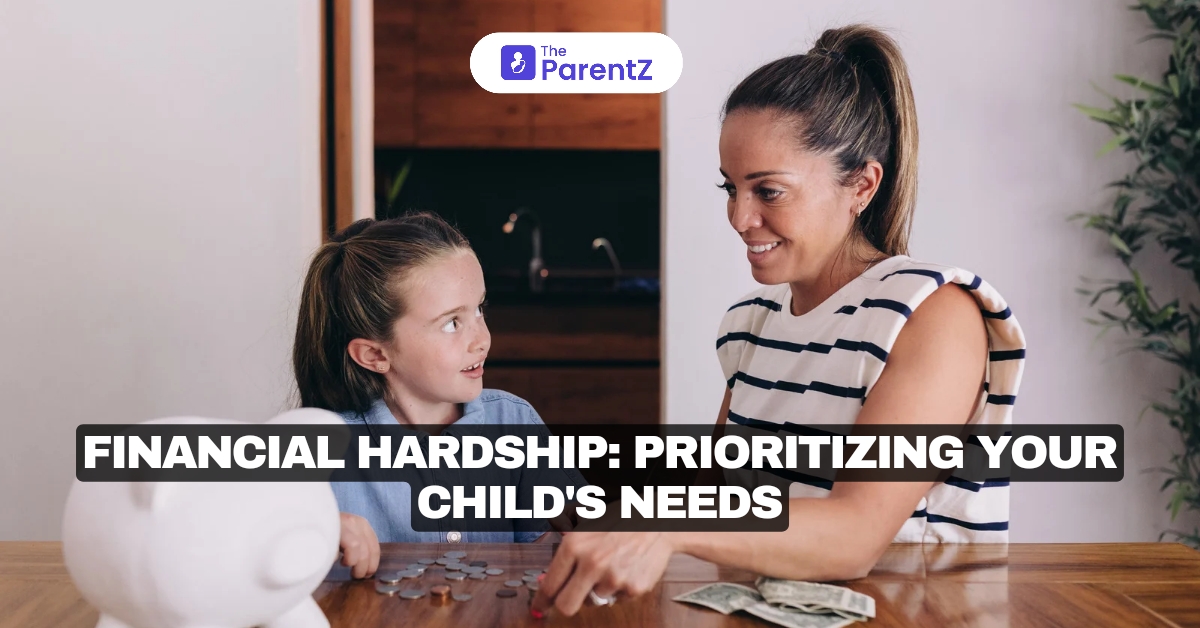Financial hardship can be a devastating experience, especially for parents struggling to provide for their children. It leads to stress, anxiety, and despair. However, it is important to remember that you are not alone in this situation. Many families face financial difficulties, and there are ways to cope with the challenges and ensure that your child's basic needs are met.
This blog will discuss how to handle financial hardship without compromising your child's basic needs. We will also discuss how to decide what is necessary and what is not and how talking to your children about your situation can help them in the long run.
Understanding the Situation
The first step in managing financial hardship is to assess your situation. Take some time to figure out your income and expenses. Once you have an exact picture of your finances, you can begin to form a plan.
Prioritizing Your Child's Basic Needs
One of the most important things to remember is that your child's basic needs must come first. This includes food, shelter, clothing, and healthcare. You may need to make sacrifices in other areas of your life to ensure that your child's needs are met. Here are some tips for prioritizing your child's basic needs:
- Food: Ensure your child has access to nutritious food, even if it means cutting back on your expenses. You can find affordable food options at grocery stores, farmers' markets, and food banks.
- Shelter: Ensure your child has a safe and stable place to live. If you are facing eviction, resources are available to help you find affordable housing.
- Clothing: Your child needs appropriate clothing for the weather and their activities. You can find affordable clothing at thrift stores, consignment shops, and online retailers.
- Healthcare: Your child's health is a top priority. Ensure they have access to essential medical care, even if it means seeking financial assistance.
- Education: It is essential for your child's future. If you are struggling to afford school supplies or tuition, resources are available to help you.
Tips for Handling Financial Hardship
When facing financial hardship, it is important to be mindful of your spending and ensure that you are only spending money on what is truly necessary. Here are some tips for deciding what is needed and what is not:
- Create a budget: This will help you follow your income and expenses and make better decisions about how to spend your money.
- Cut back on unnecessary expenses: Study your budget and pinpoint areas where you can save cash. This may include eating out less, canceling subscriptions, or finding cheaper alternatives to products and services.
- Get help from friends and family: If you struggle to make ends meet, don't be afraid to ask for help from friends and family. They may be able to lend you money or provide other forms of support.
- Seek professional help: If you are overwhelmed by financial hardship, consider seeking professional help from a financial counselor or therapist.
Communicating with Your Child
It is important to be honest with your children about your financial difficulties. This will help them to understand why you are making certain decisions. It is also important to reassure them that you will do everything possible to provide for them.
Talking to your children about your financial situation can also help them develop important life skills, such as money management and problem-solving. It can also help them develop compassion for others who are struggling.
Tips for talking to your children about financial hardship:
- Be honest and open. Being honest with your children about your financial situation is important. However, you should avoid using negative language or blaming them for your problems.
- Use age-appropriate language. How you talk to your children about money will depend on their age. Younger kids may need simpler explanations, while older children may be able to handle more involved details.
- Be positive and hopeful. Even in tough times, keeping a positive outlook will help your children feel more secure and optimistic about the future.
- Encourage your children to ask questions. Let your children know they can ask you any questions about your financial situation. This will help them to feel more involved and informed.
Things to Avoid When Facing Financial Hardship
There are a few things that you should avoid doing when you are facing financial hardship:
- Borrowing money from loan sharks. Loan sharks often charge exorbitant interest rates, making it even more challenging to get out of debt.
- Using credit cards to pay for essentials. If you struggle to make ends meet, you should avoid utilizing credit cards to pay for necessities. This will only make your financial problems worse.
- Giving up on your dreams. It is important to remember that financial hardship is temporary. There are ways to overcome it and achieve your goals.
Conclusion
Financial hardship can be a devastating experience. However, it is important to remember that you are not alone in this situation. There are ways to cope with the challenges and meet your child's basic needs.





Be the first one to comment on this story.